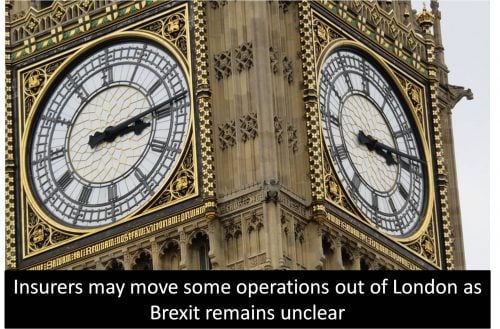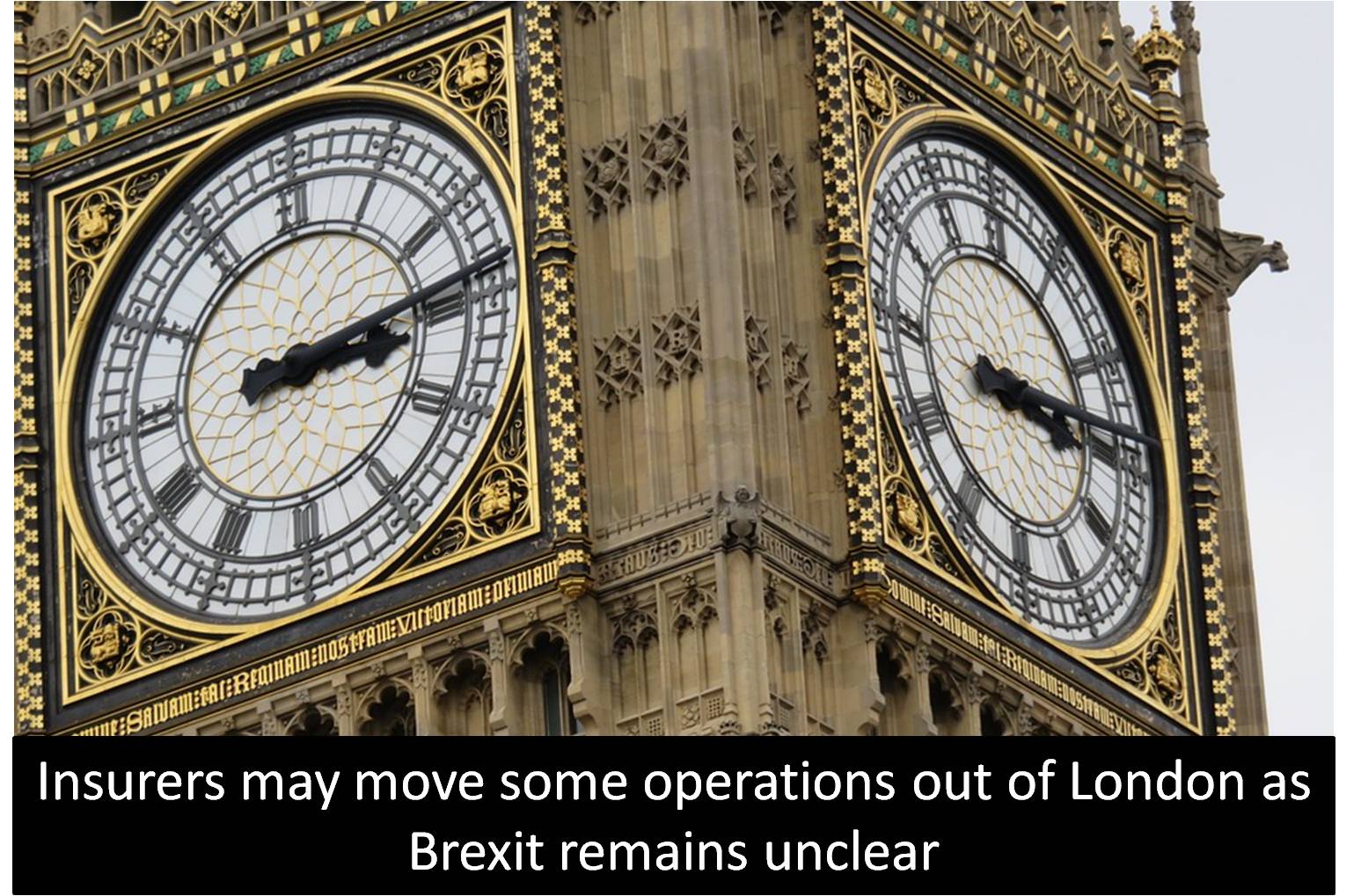Prolonged Brexit uncertainty and the continuing lack of clarity surrounding the UK’s departure from the EU may prompt the famous global insurance company Lloyd’s of London to move some of its operations to continental Europe.
Lloyd’s is more than Lloyd’s of London, chairman John Nelson told BBC radio’s Today programme on Monday morning, as he lists the company’s other main operating hubs around the world.
Nelson explains there are parts of the business where it would be more efficient for Lloyd’s to move them into the European Union (EU) if the Brexit deal does not give the UK access to the single market. He remarks:
“The issue is, if we do not get access to the EU single market, what will happen is that business will be written by us and others onshore EU.”
 Concerns about retaining access to the single market and prolonged Brexit uncertainty may prompt other global insurance companies to follow Lloyd’s and consider moving some of their operations out of London to mainland Europe anyway.
Concerns about retaining access to the single market and prolonged Brexit uncertainty may prompt other global insurance companies to follow Lloyd’s and consider moving some of their operations out of London to mainland Europe anyway.
“So, in a sense,” says Nelson, “the loser will not be Lloyd’s or the industry, sadly, it will be London.”
He also warns that this could happen anyway, if Brexit negotiations become prolonged, and the direction they are taking remain unclear.
Plus, he adds that Lloyd’s would not be the only insurer likely to take this step. The insurance industry is a mobile industry, says Nelson, and it will “vote with its feet.”
Referring to Lloyd’s, he says if they do not “see a clear direction of travel” on leaving the EU then they will invoke contingency plans to move some business out of London in a shorter timescale than the Brexit negotiations.
Passporting rights
Lloyd’s say their plan in Europe following the Brexit referendum vote to leave the EU, is to focus on retaining access to the single market with the “passporting rights” they currently operate under.
Under current arrangements, the EU treats the Lloyd’s business model as equivalent to more conventionally-organized insurance companies. This is different from the way that Lloyd’s is treated outside the EU.
A major benefit of being part of the EU for Lloyd’s is the “passporting rights.” When an insurance firm in an EU member state has passporting rights, it can carry on operations in other EU member states on the basis of its home state authorization.
Such a system avoids many of the costs of authorization, regulatory compliance, and supervision by each member state separately.
Nelson’s comments suggest that other UK-based insurers who rely on passporting as essential to their EU business may also be thinking about moving some operations onto mainland Europe so they don’t have to live with a prolonged Brexit uncertainty.
The EU, the EEA, and the single market
In negotiating a path for Brexit, the UK government will need to clarify relationships with the single market and the European Economic Area (EEA), as well as the European Union (EU).
The European Union (EU) is an economic and political union of 28 countries. It operates a single market that allows free movement of goods, capital, services, and people among member states.
The 28 countries of the EU are: Austria, Belgium, Bulgaria, Croatia, Republic of Cyprus, Czech Republic, Denmark, Estonia, Finland, France, Germany, Greece, Hungary, Ireland, Italy, Latvia, Lithuania, Luxembourg, Malta, the Netherlands, Poland, Portugal, Romania, Slovakia, Slovenia, Spain, Sweden, and the United Kingdom.
The European Economic Area (EEA) comprises the 28 countries of the EU plus three others: Iceland, Liechtenstein, and Norway. Being part of the EEA allows them to be part of the EU’s single market.
Switzerland is not a member of the EU or the EEA, but it is part of the EU’s single market. This means Swiss nationals have the same rights to live and work in the UK as other EEA nationals.
In 2015, the EEA accounted for £2.93bn, or 11 percent, of Lloyd’s Gross Written Premium.

